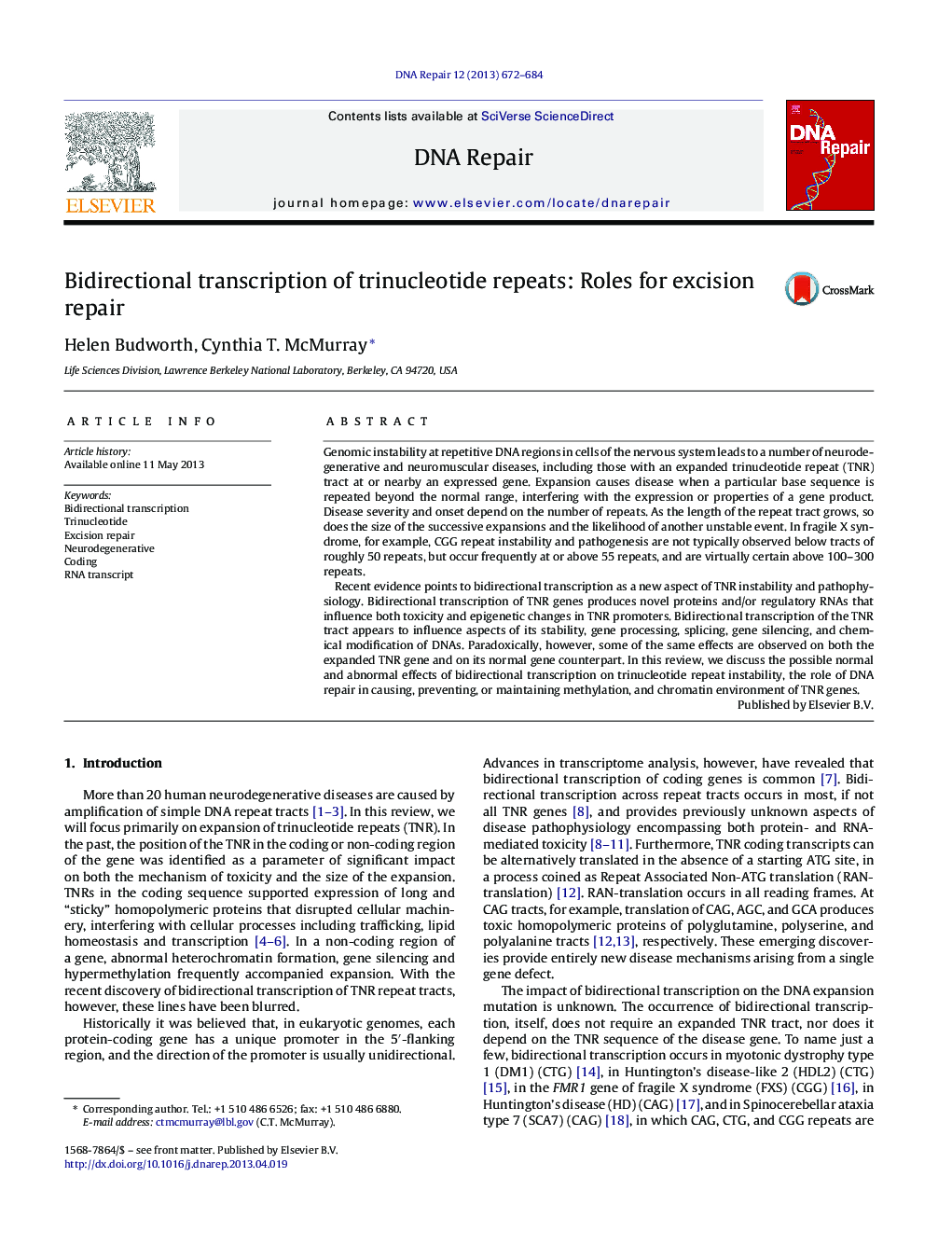| Article ID | Journal | Published Year | Pages | File Type |
|---|---|---|---|---|
| 10823382 | DNA Repair | 2013 | 13 Pages |
Abstract
Recent evidence points to bidirectional transcription as a new aspect of TNR instability and pathophysiology. Bidirectional transcription of TNR genes produces novel proteins and/or regulatory RNAs that influence both toxicity and epigenetic changes in TNR promoters. Bidirectional transcription of the TNR tract appears to influence aspects of its stability, gene processing, splicing, gene silencing, and chemical modification of DNAs. Paradoxically, however, some of the same effects are observed on both the expanded TNR gene and on its normal gene counterpart. In this review, we discuss the possible normal and abnormal effects of bidirectional transcription on trinucleotide repeat instability, the role of DNA repair in causing, preventing, or maintaining methylation, and chromatin environment of TNR genes.
Keywords
Related Topics
Life Sciences
Biochemistry, Genetics and Molecular Biology
Biochemistry
Authors
Helen Budworth, Cynthia T. McMurray,
